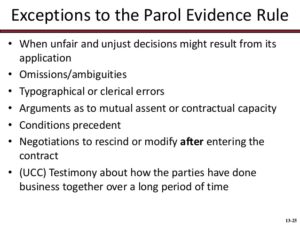Mes: noviembre 2017
Que es un “Waiver of Subrogation” en Construcción?
Muchos contratos de diseño y construcción y subcontratos contienen una disposición de “exención de subrogación” en la sección de “Requisitos de seguro” del contrato. Este tipo de provisión se incluye para evitar que una compañía de seguros, que ya ha pagado por una pérdida ocurrida, demande a otra parte involucrada en el proyecto que haya podido haber causado dicha pérdida. ¿Pero qué es exactamente “subrogación” (subrogation) y qué significa “renunciar” a los derechos de subrogación (waiver of subrogation)?
La razón detrás de la exención de la subrogación es que las partes de un contrato de construcción pagan primas sustanciales para comprar un seguro para protegerse contra ciertos riesgos. Si un asegurador paga un reclamo, según el argumento, debe soportar la pérdida y no se le permite pasarlo a otra parte. De lo contrario, las compañías de seguros raramente pagarían por nada. Otro beneficio de la exención de la subrogación es que evita litigios costosos que pueden surgir si un asegurador persigue a una o más partes en el contrato.
Por estos motivos, la mayoría de los contratos de construcción estándar (contract form), incluido el Instituto Estadounidense de Arquitectos (AIA), constituyen documentos que contienen exenciones de las disposiciones de subrogación. Por lo general, según estas disposiciones, las partes renuncian a todos los derechos entre sí por los daños causados por fuego u otros peligros en la medida en que dichos daños estén cubiertos por el riesgo del constructor u otro seguro de propiedad.
Lea mas en:
What Is a “Waiver of Subrogation” in a Construction Contract? HFLaw.com
Waivers of subrogation: Are you really protected? efacpa.com/
TOP 10 Accidentes en Fundiciones de Metal
Que es el “parol evidence rule”?

Image from: https://image.slidesharecdn.com/chap011-writtencontracts-140124112732-phpapp01/95/bus-115-chap011-written-contracts-25-638.jpg?cb=1390562957
El “Parol Evidence Rule” establece que si un acuerdo entre dos partes se realiza por escrito, las partes no pueden presentar evidencia ante el tribunal de ningún acuerdo verbal o implícito que contradiga lo que está escrito. No se debe confundir “parol” en estos casos contractuales con “parole” o “libertad condicional” en derecho penal, el cual es un beneficio que recibe una persona después de que termina una sentencia de prisión. Entonces, “parol evidence rule” tiene que ver con contratos, no con criminal law. Parol Evidence Rule es como señal de Alto para la entrada de evidencia extrínseca (en algunos países puede ser informalmente referida con la frase “Papelito Manda”).
(…)
Hay varias situaciones en las que la evidencia “extrinseca” será admitida en La Corte, incluso existiendo un contrato escrito, sin embargo. Éstas incluyen:
- Para ayudar al juez o al jurado a interpretar los términos del contrato
- Para mostrar que el contrato es ambiguo y que, por lo tanto, se necesita evidencia externa para descubrir su significado real
- Para demostrar que el contrato no es válido
- Para demostrar que un término en el contrato es un error cometido al transcribir una copia del contrato (con tecnología que puede hacer copias precisas fácilmente, sin embargo, esta razón se utiliza con menos frecuencia de lo que era)
- Para corregir un error
- Para mostrar que se produjo fraude, coacción, comportamiento inconsciente o interferencia ilícita con el contrato
- Para mostrar que la “consideration” no fue satisfecha
- Para identificar a las partes, especialmente si uno o ambos han cambiado de nombre a través del matrimonio, fusión corporativa u otros medios legales
- Para hacer cambios en el contrato después de que se haya acordado el contrato escrito final, si el contrato establece que puede cambiarse oralmente
Texto traducido de: rotlaw.com
Arriba Perú?
Taylor V Caldwell [1863]
3 Best & S. 826
122 Eng. Rep. 310 (Q.B. 1863)
TAYLOR
v.
CALDWELL
Queen’s Bench
May 6, 1863
BLACKBURN, J. In this case the plaintiffs and defendants had, on the 27th May, 1861, entered into a contract by which the defendants agreed to let the plaintiffs have the use of The Surrey Gardens and Music Hall on four days then to come, viz., the 17th June, 15th July, 5th August and 19th August, for the purpose of giving a series of four grand concerts, and day and night fetes at the Gardens and Hall on those days respectively; and the plaintiffs agreed to take the Gardens and Hall on those days, and pay £100 for each day.
The parties inaccurately call this a “letting,” and the money to be paid a “rent;” but the whole agreement is such as to shew that the defendants were to retain the possession of the Hall and Gardens so that there was to be no demise of them, and that the contract was merely to give the plaintiffs the use of them on those days. Nothing however, in our opinion, depends on this. The agreement then proceeds to set out various stipulations between the parties as to what each was to supply for these concerts and entertainments, and as to the manner in which they should be carried on. The effect of the whole is to shew that the existence of the Music Hall in the Surrey Gardens in a state fit for a concert was essential for the fulfilment of the contract,—such entertainments as the parties contemplated in their agreement could not be given without it.
After the making of the agreement, and before the first day on which a concert was to be given, the Hall was destroyed by fire. This destruction, we must take it on the evidence, was without the fault of either party, and was so complete that in consequence the concerts could not be given as intended. And the question we have to decide is whether, under these circumstances, the loss which the plaintiffs have sustained is to fall upon the defendants. The parties when framing their agreement evidently had not present to their minds the possibility of such a disaster, and have made no express stipulation with reference to it, so that the answer to the question must depend upon the general rules of law applicable to such a contract.
There seems no doubt that where there is a positive contract to do a thing, not in itself unlawful, the contractor must perform it or pay damages for not doing it, although in consequence of unforeseen accidents, the performance of his contract has become unexpectedly burthensome or even impossible. The law is so laid down in 1 Roll. Abr. 450, Condition (G), and in the note (2) to Walton v. Waterhouse (2 Wms. Saund. 421 a. 6th ed.), and is recognised as the general rule by all the Judges in the much discussed case of Hall v. Wright (E. B. & E. 746). But this rule is only applicable when the contract is positive and absolute, and not subject to any condition either express or implied: and there are authorities which, as we think, establish the principle that where, from the nature of the contract, it appears that the parties must from the beginning have known that it could not be fulfilled unless when the time for the fulfilment of the contract arrived some particular specified thing continued to exist, so that, when entering into the contract, they must have contemplated such continuing existence as the foundation of what was to be done; there, in the absence of any express or implied warranty that the thing shall exist, the contract is not to be construed as a positive contract, but as subject to an implied condition that the parties shall be excused in case, before breach, performance becomes impossible from the perishing of the thing without default of the contractor.
There seems little doubt that this implication tends to further the great object of making the legal construction such as to fulfil the intention of those who entered into the contract. For in the course of affairs men in making such contracts in general would, if it were brought to their minds, say that there should be such a condition. Accordingly, in the Civil law, such an exception is implied in every obligation of the class which they call obligatio de certo corpore. The rule is laid down in the Digest, lib. xlv., tit. l, de verborum obligationibus, 1. 33. “Si Stichus certo die dari promissus, ante diem moriatur: non tenetur promissor.” The principle is more fully developed in l. 23. “Si ex legati causa, aut ex stipulatii hominem certum mihi debeas: non aliter post mortem ejus tenearis mihi, quam si per te steterit, quominus vivo eo eum mihi dares: quod ita fit, si aut interpellatus non dedisti, aut occidisti eum.” The examples are of contracts respecting a slave, which was the common illustration of a certain subject used by the Roman lawyers, just as we are apt to take a horse; and no doubt the propriety, one might almost say necessity, of the implied condition is more obvious when the contract relates to a living animal, whether man or brute, than when it relates to some inanimate thing (such as in the present case a theatre) the existence of which is not so obviously precarious as that of the live animal, but the principle is adopted in the Civil law as applicable to every obligation of which the subject is a certain thing. The general subject is treated of by Pothier, who in his Traite des Obligations, partie 3, chap. 6, art. 3, § 668 states the result to be that the debtor corporis certi is freed from his obligation when the thing has perished, neither by his act, nor his neglect, and before he is in default, unless by some stipulation he has taken on himself the risk of the particular misfortune which has occurred.
Although the Civil law is not of itself authority in an English Court, it affords great assistance in investigating the principles on which the law is grounded. And it seems to us that the common law authorities establish that in such a contract the same condition of the continued existence of the thing is implied by English law.
There is a class of contracts in which a person binds himself to do something which requires to be performed by him in person; and such promises, e.g. promises to marry, or promises to serve for a certain time, are never in practice qualified by an express exception of the death of the party; and therefore in such cases the contract is in terms broken if the promisor dies before fulfilment. Yet it was very early determined that, if the performance is personal, the executors are not liable; Hyde v. The Dean of Windsor (Cro. Eliz. 552, 553). See 2 Wms. Exors. 1560, 5th ed., where a very apt illustration is given. “Thus,” says the learned author, “if an author undertakes to compose a work, and dies before completing it, his executors are discharged from this contract: for the undertaking is merely personal in its nature, and, by the intervention of the contractor’s death, has become impossible to be performed.”For this he cites a dictum of Lord Lyndhurst in Marshall v. Broadhurst (1 Tyr. 348, 349), and a case mentioned by Patteson J. in Wentworth v. Cock (10 A. & E. 42, 45-46). In Hall v. Wright (E. B. & E. 746, 749), Crompton J., in his judgment, puts another case. “Where a contract depends upon personal skill, and the act of God renders it impossible, as, for instance, in the case of a painter employed to paint a picture who is struck blind, it may be that the performance might be excused.”
It seems that in those cases the only ground on which the parties or their executors, can be excused from the consequences of the breach of the contract is, that from the nature of the contract there is an implied condition of the continued existence of the life of the contractor, and, perhaps in the case of the painter of his eyesight. In the instances just given, the person, the continued existence of whose life is necessary to the fulfilment of the contract, is himself the contractor, but that does not seem in itself to be necessary to the application of the principle; as is illustrated by the following example. In the ordinary form of an apprentice deed the apprentice binds himself in unqualified terms to “serve until the full end and term of seven years to be fully complete and ended,” during which term it is covenanted that the apprentice his master “faithfully shall serve,” and the father of the apprentice in equally unqualified terms binds himself for the performance by the apprentice of all and every covenant on his part. (See the form, 2 Chitty on Pleading, 370, 7th ed. by Greening.) It is undeniable that if the apprentice dies within the seven years, the covenant of the father that he shall perform his covenant to serve for seven years is not fulfilled, yet surely it cannot be that an action would lie against the father? Yet the only reason why it would not is that he is excused because of the apprentice’s death.
These are instances where the implied condition is of the life of a human being, but there are others in which the same implication is made as to the continued existence of a thing. For example, where a contract of sale is made amounting to a bargain and sale, transferring presently the property in specific chattels, which are to be delivered by the vendor at a future day; there, if the chattels, without the fault of the vendor, perish in the interval, the purchaser must pay the price and the vendor is excused from performing his contract to deliver, which has thus become impossible.
That this is the rule of the English law is established by the case of Rugg v. Minett (11 East, 210), where the article that perished before delivery was turpentine, and it was decided that the vendor was bound to refund the price of all those lots in which the property had not passed; but was entitled to retain without deduction the price of those lots in which the property had passed, though they were not delivered, and though in the conditions of sale, which are set out in the report, there was no express qualification of the promise to deliver on payment. It seems in that case rather to have been taken for granted than decided that the destruction of the thing sold before delivery excused the vendor from fulfilling his contract to deliver on payment.
This also is the rule in the Civil law, and it is worth noticing that Pothier, in his celebrated Traite du Contrat de Vente (see Part. 4, § 307, etc.; and Part. 2, ch. 1, sect. 1, art. 4, § 1), treats this as merely an example of the more general rule that every obligation de certo corpore is extinguished when the thing ceases to exist. See Blackburn on the Contract of Sale, p. 173.
It may, we think, be safely asserted to be now English law, that in all contracts of loan of chattels or bailments if the performance of the promise of the borrower or bailee to return the things lent or bailed, becomes impossible because it has perished, this impossibility (if not arising from the fault of the borrower or bailee from some risk which he has taken upon himself) excuses the borrower or bailee from the performance of his promise to redeliver the chattel. The great case of Coggs v. Bernard (1 Smith’s L. C. 171, 5th ed.; 2 L. Raym. 909) is now the leading case on the law of bailments, and Lord Holt, in that case, referred so much to the Civil law that it might perhaps be thought that this principle was there derived direct from the civilians, and was not generally applicable in English law except in the ease of bailments; but the case of Williams v. Lloyd (W. Jones, 179), above cited, shews that the same law had been already adopted by the English law as early as The Book of Assizes. The principle seems to us to be that, in contracts in which the performance depends on the continued existence of a given person or thing, a condition is implied that the impossibility of performance arising from the perishing of the person or thing shall excuse the performance.
In none of these cases is the promise in words other than positive, nor is there any express stipulation that the destruction of the person or thing shall excuse the performance; but that excuse is by law implied, because from the nature of the contract it is apparent that the parties contracted on the basis of the continued existence of the particular person or chattel. In the present case, looking at the whole contract, we find that the parties contracted on the basis of the continued existence of the Music Hall at the time when the concerts were to be given; that being essential to their performance.
We think, therefore, that the Music Hall having ceased to exist, without fault of either party, both parties are excused, the plaintiffs from taking the gardens and paying the money, the defendants from performing their promise to give the use of the Hall and Gardens and other things. Consequently the rule must be absolute to enter the verdict for the defendants.
Rule absolute.
Taken from: h2olawharvard


